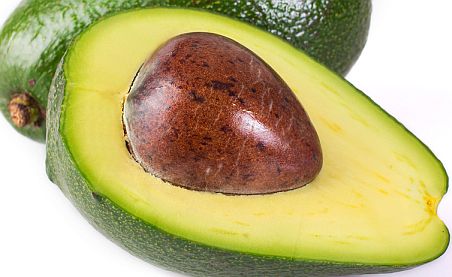Avocado Allergy – Can you be allergic to avocados?
Since avocado allergy is not a very common occurrence you may have been caught unaware of an allergic reaction to avocado. Like all other food allergies it is important to deduct the allergen from your diet in order to avoid any negative symptoms. According to a study by Elissa M Abrams et al, anaphylaxis due to avocado intake is extremely rare. Anaphylaxis is an immunological reaction of the body against foreign material that can be life-threatening. It is still important to remember that avocado intolerance is an allergy and so must be treated before the situation aggravates.

Can you be allergic to avocado without knowing?
Types of Avocado Allergy
There are in fact two types of avocado allergies that affect the general population. The first is the oral allergy syndrome and the second is an allergy associated with latex. Oral allergy syndrome is the less severe form of the two and is manifested upon eating the fruit or any food containing it. It is caused by the body reacting to the avocado after not being able to recognize its biological molecules. In doing so the body reacts to the avocado much like it does to pollen as an allergen. Oral allergy syndrome actually affects up to one third of the people who have pollen allergies.
As for the avocado-latex connection, the American Academy of Allergy, Asthma and Immunology reports that approximately half of the people with latex allergies are also allergic to avocados. This is because the proteins present in the latex are similar to the ones in these fruits and are not recognized by your body which prompts the immunological system to attack them. Allergy to avocado in association with latex allergy is more serious and severe than oral allergy syndrome. In addition, intolerance to other foods like chestnut, kiwi, tomatoes and bananas may also be present.
Symptoms of Avocado Allergy
Avocado allergy symptoms vary depending on the type of allergy. As described earlier, if you already suffer from latex allergy the symptoms will be much more severe. However if you suffer from oral allergy syndrome the symptoms will not be much different from those that affect people with pollen allergies. To put it in other words, the symptoms of oral allergy syndrome to avocado may appear on the mouth, lips and throat. You may experience itching or a tingling sensation in the moth or throat area. It is also not uncommon that swelling may occur on you lips, throat and tongue. Again, similarly to pollen allergy, the patient may also experience itchy and watery eyes and frequent sneezing after eating an avocado or food containing it, for example guacamole. It is extremely rare to suffer from anaphylaxis as a result of oral allergy syndrome to avocados.
If you already know that you suffer from latex allergy perhaps after an unfortunate reaction to balloons, it is wise to stay away from avocados, kiwis, bananas, chestnuts and tomatoes. Symptoms produced by this crossfire include hives, skin rashes, itching, watery eyes, wheezing, nasal congestion and frequent sneezing. In addition the patient may also experience nausea, vomiting, shortness of breath, hoarse voice, and sore throat, trouble in swallowing and avocado diarrhea. This shows the wide range of symptoms that you can be affected with from mild to severe so it is best to consult a doctor and get an avocado allergy test done.

Symptoms of avocado allergy may include sneezing and stuffy nose.
Avocado Allergy Treatment
According to a case examined by Allan B Becker et al, a fifteen year old patient with an avocado allergy who’s symptoms did not respond to anti-histamine tablets was taken to the emergency where he was treated with an anti-histamine injection and steroid. Upon release, he was prescribed a steroid and also given an epi-pen. Since every patient’s response to an allergy is unique to themselves it is best to consult a doctor as to what particular medicine would be suitable for treating your allergy symptoms. Sometimes patients develop a tolerance to avocados after repeated exposure but obviously there are risks associated with it and it is better to be safe. Since allergies can never really be completely obliterated it is best to have a couple of natural remedies to fall back on every time you accidentally encounter an allergen. Let’s look at some of those.
Natural Remedies for Avocado Allergy
Avoid Avocados and Avocado containing foods – Prevention is better than cure. It is most advisable that you avoid eating avocados at all cost and also beware of foods that contain avocado like guacamole, salsa, soup and mixed fruit juices. If you react severely to avocado, wear a medical alert necklace that can help in case of emergency.
- Apply Aloe Vera – Rashes or itchy skin caused by avocado allergy can be treated with the soothing effects of Aloe Vera. Just buy a tube of Aloe Vera gel or cut a leaf of Aloe Vera and apply it to your skin to calm the allergic reaction.
- Drink some green tea – Herbal concoctions like green tea or chamomile tea have an anti-histamine effect that can relieve many of the symptoms of avocado allergy including rashes, itching, hives and sore throat.
- Pomegranate and Sugar cane juice – Who ever thought that the cure for an allergy would be so delicious? Freshly made pomegranate and sugar cane juice soothes the stomach and alleviates all traces of nausea. Vomiting and diarrhea can also be prevented by sipping on these fresh juices.
- Inhale steam – Inhaling steam can open up your nasal pathways and clear away all the mucus that’s making you all stuffy. For a magic touch, add some chamomile tea in it!
Now you’re well equipped to deal with an avocado allergy. Just remember it’s better to be careful than sorry!
-
Advertisement

 Facebook
Facebook  Twitter
Twitter  RSS
RSS







